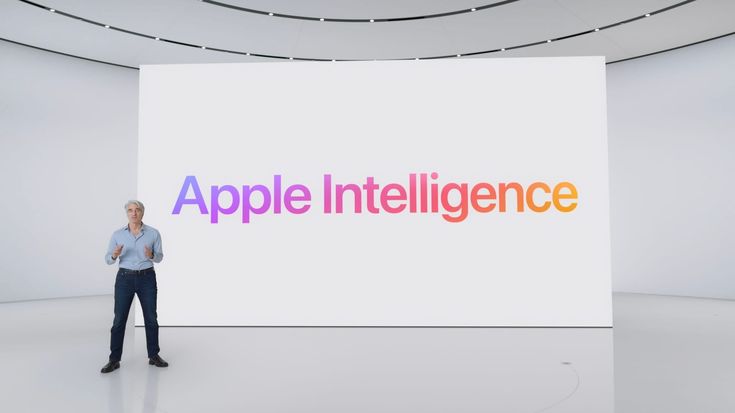
AI Play By Apple: Revenue Grows Despite Cautious Rollout, as APPLE INTELLIGENCE Takes Center Stage
Aug 2, 2025 |
👀 53 views |
💬 0 comments
Apple is navigating the high-stakes artificial intelligence landscape with a strategy that, while seemingly slower to market with flashy AI products compared to some rivals, continues to deliver solid revenue growth. The tech giant's approach emphasizes a privacy-first, on-device AI experience, meticulously integrating "Apple Intelligence" features across its ecosystem rather than pursuing a "first-to-market" race.
Despite concerns from some analysts about Apple's perceived lag in the generative AI space, the company recently reported strong quarterly revenue, exceeding analyst expectations. This growth, fueled by robust iPhone sales, a rebound in the China market, and continued strength in its Services segment, indicates that Apple's core business remains incredibly healthy even as its major AI product releases are taking a more measured pace.
"Apple Intelligence": A Hybrid, Privacy-First Approach
Apple officially unveiled its comprehensive AI strategy, dubbed "Apple Intelligence," at WWDC in June 2025. This suite of features is designed to integrate generative AI capabilities directly into iOS 18, iPadOS 18, and macOS Sequoia, harnessing the power of Apple's custom silicon for on-device processing. This focus on local processing is a key differentiator, aimed at enhancing user privacy by minimizing data transfer to cloud servers.
Key "Apple Intelligence" features already rolling out or expected soon include:
Systemwide Writing Tools: Allowing users to rewrite, proofread, and summarize text across various apps like Mail, Notes, and Pages.
More Natural Siri: A significantly upgraded Siri with enhanced language understanding, contextual awareness, and the ability to handle more complex, multi-step requests, even across different applications. Apple acknowledges that a more personalized Siri will be launching in 2026.
Image Playground & Genmoji: Tools for creating playful images and custom emojis based on text descriptions.
Enhanced Photos App: Improved search capabilities using natural language, an "Image Wand" to refine sketches, and a "Clean Up" tool to remove distractions from photos.
Summaries & Priority Notifications: AI-powered summarization for emails, messages, and notifications, along with intelligent prioritization of alerts.
Apple's strategy also includes a hybrid AI model, where some more complex requests might be handled by cloud-based servers running on Apple silicon, under a new "Private Cloud Compute" initiative that extends privacy protections to the cloud. Furthermore, Apple has confirmed a partnership with OpenAI to integrate ChatGPT into Siri and its writing tools, offering users a broader knowledge base when needed, with explicit user permission.
Strategic Investments and Future Outlook
Under CEO Tim Cook, Apple is significantly increasing its investment in AI infrastructure, with planned capital expenditures reaching $14 billion annually. This includes substantial investments in data centers in North Carolina, Arizona, and Nevada, and a new server manufacturing facility in Houston slated for 2026. Apple is also "very open" to AI-focused acquisitions, having already acquired approximately seven AI companies in 2025 to accelerate its roadmap.
However, Apple's AI journey hasn't been without criticism. The company has faced accusations of being slow to market compared to rivals like Google and Microsoft, who have aggressively integrated generative AI into their core products. There have also been reports of talent poaching by competitors like Meta, particularly in key AI research areas, and delays in delivering on some promised Siri upgrades.
Despite these challenges, Apple's long-term bet remains on differentiation through user experience, seamless ecosystem integration, and privacy-centric AI. The company believes that by focusing on "personal intelligence" that understands and adapts to individual user context, it can unlock new revenue streams through premium services and AI-enhanced hardware, potentially re-igniting demand for its devices. As Apple continues to roll out its "Apple Intelligence" features, the market will be watching closely to see if its deliberate, privacy-focused approach can indeed redefine what consumers expect from AI in their daily lives.
🧠 Related Posts
💬 Leave a Comment
